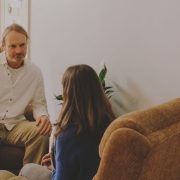Relationship Counselling
Relationship Counselling is one of the best things we can do for a healthy relationship. Our Relationship with our partner is the biggest investment in our lives. If our relationship is healthy then life is generally enjoyable. But if our relationship has problems we generally feel unhappy or uneasy. My advice is to not leave it til crisis.
In my role as a relationship counsellor I see lots of people who are unhappy, stressed or anxious because some aspect of their relationship isn’t working. Often this can become chronic as issues aren’t dealt with and disconnection and resentment builds over time. Resentment can become engrained so that every interaction is coloured with a little resentment toward the other.
Relationships can break down for a number of reasons, poor communication being at the core of most relationship breakdowns. This is where relationship counselling can help immensely in opening up lines of communication and helping each partner understand the other person’s world.
There are 5 stages of relationship.
1. The Romance Stage
2.The Power Struggle Stage
3. The Stability Stage
4.The Commitment Stage
5.The Co-Creation Stage
Let’s look at these stages a little closer;
The Romance or honeymoon period Stage
How come its so good at the start ? Where did that person I knew in those first few months go ?
When two people are attracted and start dating something wonderful happens. The love and affection of another person is like a drug, an elixir to all of life’ s problems. We fall ‘in love’, an inner realm opens up and we feel amazing. We only see the good in the other, and they only see the good in us. We can do no wrong, and nor can they. Isn’t it a blissful time.
This is the honeymoon stage of relationship…. It usually lasts around 3 months.
The Power Struggle Stage
The romantic love fizzles out as we get a little more deeply attached, involved, and invested. We start to see the other persons ‘dark’ side. They start to trigger our dark side. We create expectations and disappointments and communication can begin to erode.
Instead of seeing similarities, we begin to notice flaws. We try to establish dominance at this stage. Perpetrator (manipulator) and victim archetypes begin to show.
The Stability Stage
Once you’ve completed the Power Struggle stage, the relationship can settle and returns to an even deeper, more mature form than the Romance stage.
In this stage, we start to accept our partners flaws and that we can only change what they are willing to change.
You’re OK with your partner being different from you. You have some clear boundaries and you are learning mutual respect. If you don’t, you go back to the Power Struggle (for some people the power struggle is where they are stuck, or a victim perpetrator relationship can be the result).
The Commitment Stage
In the commitment stage, you surrender even more to the other person as a life partner. And to the reality that you and your partner are human and that your relationship has shortcomings as a result but you are committed to working through these as they arise. You know that you choose each other consciously.
You can look at your partner and say, “I choose you knowing all I know about you, good and bad.”
In a healthy commitment you can experience a balance of love, belonging, fun, power, and freedom.
The Co-Creation Stage
In this stage you become a team moving out into the world. You move beyond the relationship and your relationship becomes a gift to the world.
Often, couples in this stage work on a project together – some kind of shared creative work that is intended to contribute to the world in some way e.g. a business, a charity or a family.
You may keep revisiting the power struggle stage but with an understanding and knowing of the deeper love and commitment that is the foundation of your life together.
The Problems
The problems stem from becoming emotionally involved and attached to outcomes. We try to create routine and try to re-create the same situation where we had some pleasurable outcome and can become angry or sulky if we don’t get the same thing again (eg. a romantic dinner leads to intimacy in the bedroom, the male will often try to re-create this so he can ‘get the goodies’ again. Unmet expectations begin to turn into disappointment and resentment.
We start to trigger or flush the other person’s old issues. A good relationship will definitely bring up everything from childhood issues to previous relationship issues and everything else in between.
We start to see the other as the cause of our hurt, we start to blame one another for how we feel. Patterns of dependency and blame begin to form.
Compromise happens that can cause further resentment, we hand over our power to the other. Eg. Sarah doesn’t spend as much time at her mother’s because Pete doesn’t like mother and gets angry. So Sarah ends up resenting Pete for ‘making’ her stay away, when really it was Sarah who has given her power to Pete.
Many underlying issues begin to be created. Where one partner doesn’t bring up some issue, accepts it (tolerates it) instead, because bringing it up will trigger anger and we avoid confrontation. So there can be many issues that we don’t actually deal with because we don’t want to rock the boat and trigger the other person into disappointment or anger.
Relationship Counselling is a great way to present issues in a supportive space with a professional counsellor to ‘steady the ship’ and bring positive perspectives to otherwise difficult issues.
What men want most in relationship is to be appreciated. What women want most in relationship is to be valued.
If women open up to men, men try to fix the problem and get frustrated when their attempts at fixing it are not what she really wants. Women want to be listened to, a space held to empty out emotionally. They can become disappointed when their man can’t seem to give them that.
The Solutions
The best solution is to arrange some relationship counselling. Otherwise find some common ground. Approach your partner in a time when he or she is in a good space. And carefully present what seems to be the problem. Couples really benefit from bringing things to the table. Bringing up those things that have been getting in the way of a good flow.
Many females benefit from having some space occasionally, a little time to rest and reflect. I encourage this to bring life back to a flailing relationship. A week apart can be one of the most courageous, healthy and loving acts in a relationship. I’ve sometimes recommended this in a relationship as it gives both parties space to feel the pain of separation and rekindle the flame of Love. We can start a clean slate with the intention of listening and giving the other person what they need to feel safe, supported and loved.
How does relationship counselling work ?
When couples come to me for a session I ask each person to share what they feel are the issues or problems within the relationship. Each person takes a turn and shares their world, while the other listens, deeply listens, and does not interrupt.
I explain that my office is a safe place, where each person can vent or let go of anything they have been holding onto within the relationship. This is extremely powerful and a lightness usually follows. Helping the other person to not personalize, knowing that this is a healthy thing.
As we go along I help both partners hear and understand the other persons world.
Usually both parties have to take some responsibility in the deterioration of the relationship. It’s never a one way track.
Relationship counselling can take one or two sessions or can last months to unearth and heal many buried issues. The timeframe depends on factors such as how long the issues have been there and how willing both parties are to work on the relationship.
I’m remain neutral and non-judging throughout the process, offering higher guidance or suggestions and helping one party see the other parties point of view or helping them see how their own attitude or behaviour is affecting the other person (through ignorance).
Part of the process could involve me having a session with one partner separately for psychotherapy if there is a deeper issue Eg. some childhood issue with Mum or Dad that is negatively affecting the relationship.
There are usually moments where the couple begin to feel the love that bought them together. This is a beautiful thing. Where a smile, a laugh, a lingering look appears where before there was resentment.
The couple can then start to clear some of the issues and get back to the basis of what they had together, a loving friendship. And a new version of relationship can begin, a much more amazing, far deeper and connected version of relationship arises from the ashes of the old.
If you are interested in improving your relationship I’m available for relationship counselling and work in Geelong. I also offer Skype sessions for those people unable to make it in personally.
Check out some of my other Articles or call or text me on 0414 586 910 to book a session. Lets touch base soon.
Would love to help you improve your relationship as I specialize in this area.
Warm regards, Steve








